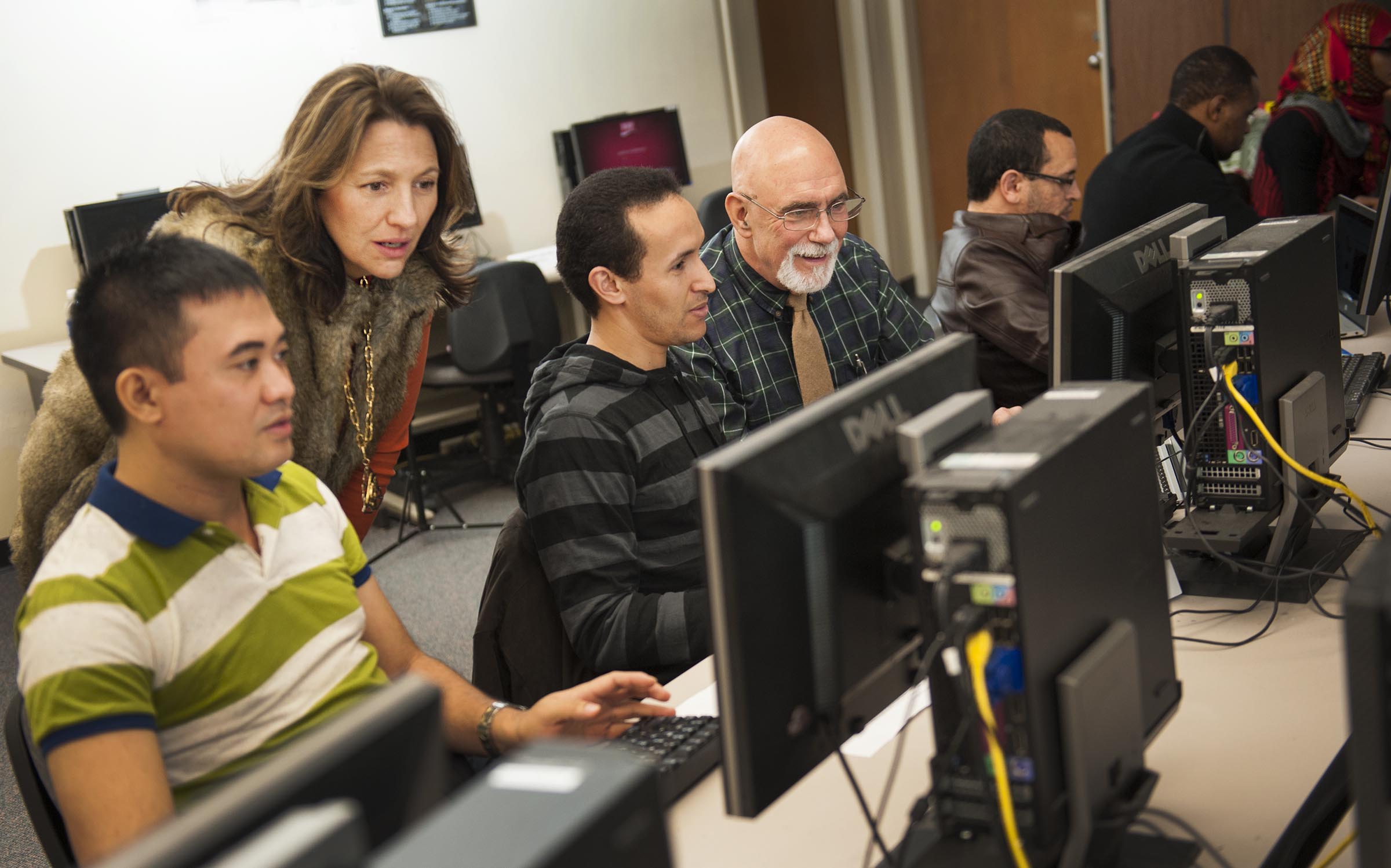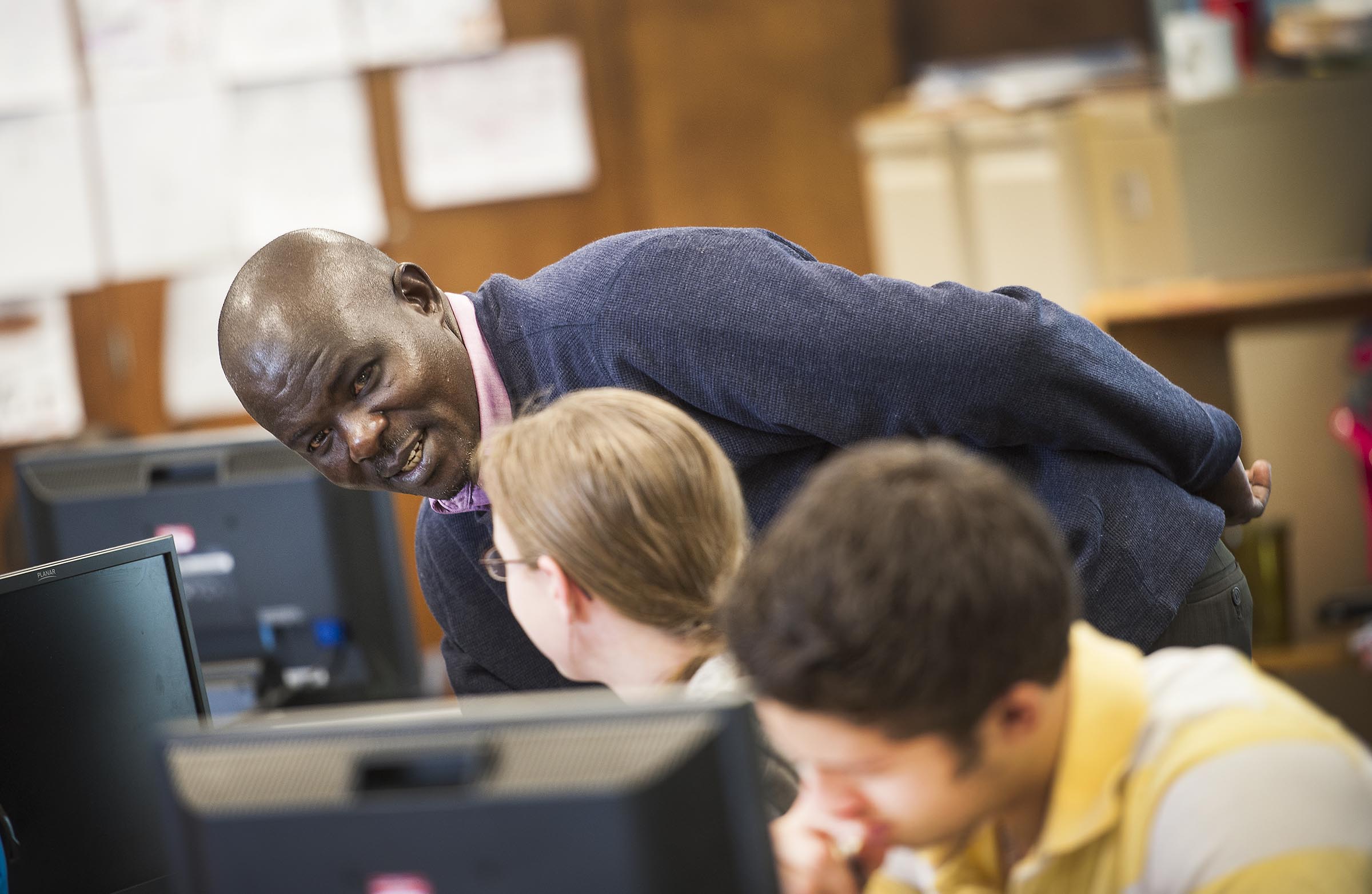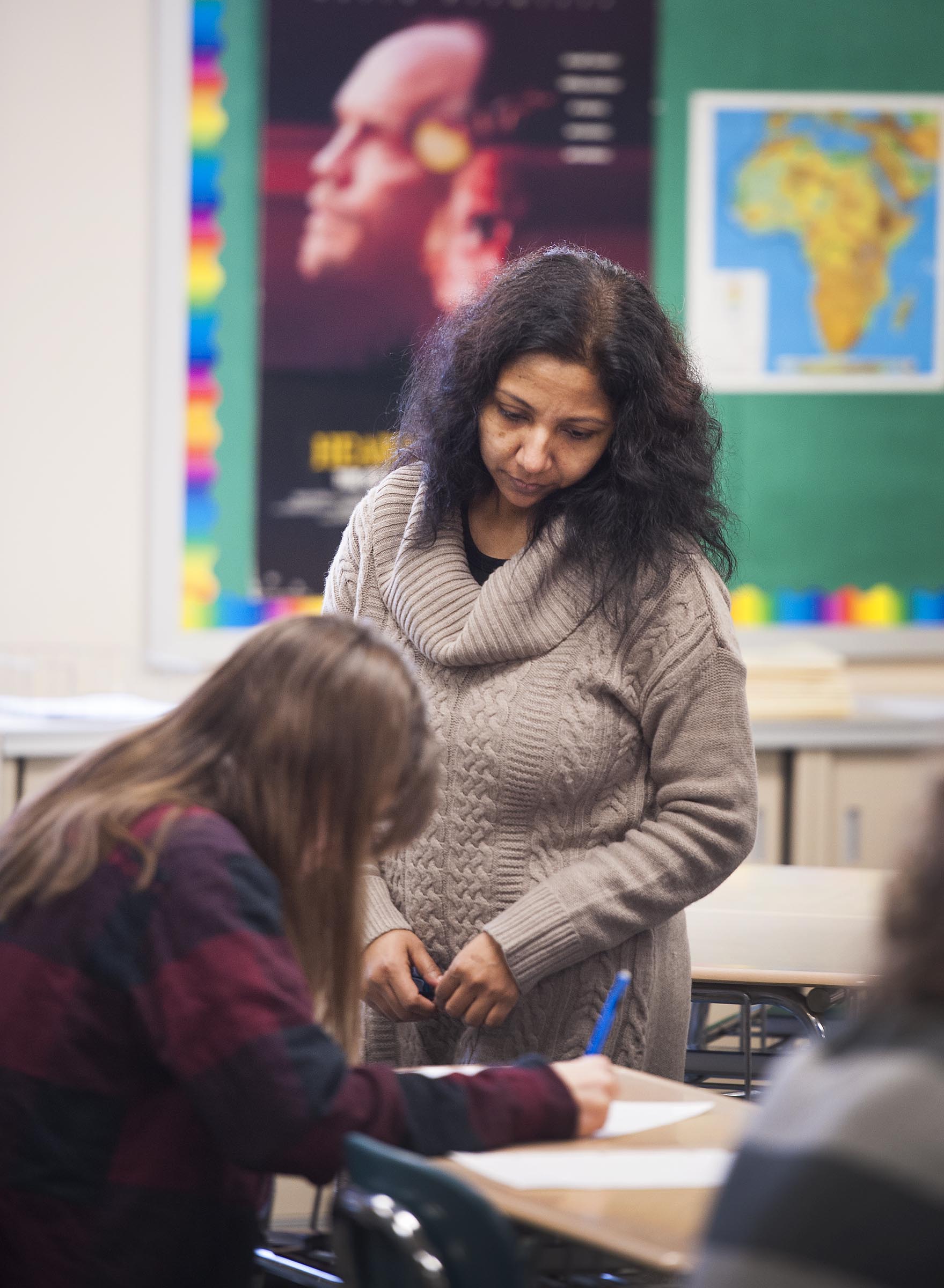Indiana University of Pennsylvania has secured an $185,000 grant from the Department of State's Bureau of Educational and Cultural Affairs for the International Leaders in Education Program (ILEP).
 As a recipient of the funds, IUP will serve as a host institution for 16 international secondary teachers (Fellows) for an immersive professional development experience.
As a recipient of the funds, IUP will serve as a host institution for 16 international secondary teachers (Fellows) for an immersive professional development experience.
The ILEP Fellows also will be on site to learn from teachers at Indiana Area High School and Brashear High School in Pittsburgh to gain different contexts and perspectives on the American educational system.
The focus of the program is to promote and develop teacher leadership, technology integration skills and intercultural exchange. The ILEP Fellows are from Bangladesh, India, Kenya, Malaysia, Morocco, Philippines, Tanzania and Uganda.
 The ILEP Fellows will participate in two academic courses as well as two semester-long workshops delivered by faculty members in the IUP College of Education and Educational Technology; Educational Seminar (taught by Dr. Sue Reig and Dr. Shirley Johnson) and Technology Workshop (led by Dr. George Beiger and Dr. Susan Sibert).
The ILEP Fellows will participate in two academic courses as well as two semester-long workshops delivered by faculty members in the IUP College of Education and Educational Technology; Educational Seminar (taught by Dr. Sue Reig and Dr. Shirley Johnson) and Technology Workshop (led by Dr. George Beiger and Dr. Susan Sibert).
From January 15 to March 4, the ILEP Fellows will spend Fridays at Indiana Senior High School with selected peer teachers, and at Brashear High School in Pittsburgh from March 18 to May 6.
Dr. Lara Luetkehans, dean of IUP's College of Education and Educational Technology, and Dr. Michele Petrucci, associate vice president for the IUP Office of International Education, co-authored the grant application.
“The ILEP Fellows program is a unique opportunity for the 16 selected Fellows as well as the host university and partner high schools,” Dr. Michele Petrucci, associate vice president for International Education and Global Engagement and executive director of the American Language Institute.
“It's a chance for students, parents, teachers, professors, staff, and administrators to learn from each other and to share different aspects of our countries, including language, culture, politics, education, gender roles and more. The ILEP Fellows will most definitely learn about America but we, in turn, will also learn more about Bangladesh, India, Kenya, Malaysia, Morocco, Philippines, Tanzania and Uganda.
“It truly is an honor for IUP to be selected to host the ILEP Fellows and through this grassroots, people-to-people diplomacy effort, it is one small step towards increasing awareness and making the world more tolerant,” she said.
 The workshops and seminars offered by IUP faculty is intended to enhance the ILEP Fellows' expertise in their teaching disciplines and equip them with a deeper understanding of best practices in teaching methodologies, lesson planning, and the use of technology in education, Luetkehans said.
The workshops and seminars offered by IUP faculty is intended to enhance the ILEP Fellows' expertise in their teaching disciplines and equip them with a deeper understanding of best practices in teaching methodologies, lesson planning, and the use of technology in education, Luetkehans said.
“One of the elements of IUP's proposal that IREX rated highly toward becoming an ILEP Host University is our engaging the Fellows in both Indiana and Pittsburgh public schools,” Luetkehans said. “The two school districts provide the ILEP Fellows with both a rural and with an urban American school experience. Overall, the program is designed to provide teaching fellows with a broader understanding of the American educational system.
“Not only will this benefit the ILEP Teaching Fellows, the ripple effects are broad,” Luetkehans aid. “Teachers from the United States and and administrators in both settings will have the opportunity to learn from teacher-leaders in like content areas and roles about other educational systems and cultures. It will also be a rich experience for the students in both of these schools, learning from these teachers and building personal relationships that promote better understanding of different cultures. And, of course, the faculty and students at IUP are enriched through having the Fellows in the courses and sharing their perspectives.”
The program is implemented by the International Research and Exchanges Board (IREX). IUP is only one of four institutions selected as a host university. The other host universities for spring 2016 are Arizona State University, Kent State University and James Madison University.
The program recognizes the “transformative power of an effective teacher,” IREX officials note. The International Leaders in Education Program is designed to offer teaching fellows with enhanced teaching methodologies, lesson planning techniques, teaching strategies for their home environments, leadership abilities, and technology skills through targeted coursework, intensive training, and collaboration with colleagues from around the globe.
Field experience at a secondary school complements the coursework and actively engages teaching fellows with American teachers and students. Upon successful completion of the program, eligible alumni may compete for small grants to implement self-designed projects that benefit and empower their home schools and communities, program officials said.
“Ultimately, the program will benefit the host institution and its faculty, the high schools and its students and teachers, and will build the skills of the teaching fellows so they can return to their home countries as ‘teacher leaders,' ready to apply and share their experiences and enhanced skills with their colleagues and students.”